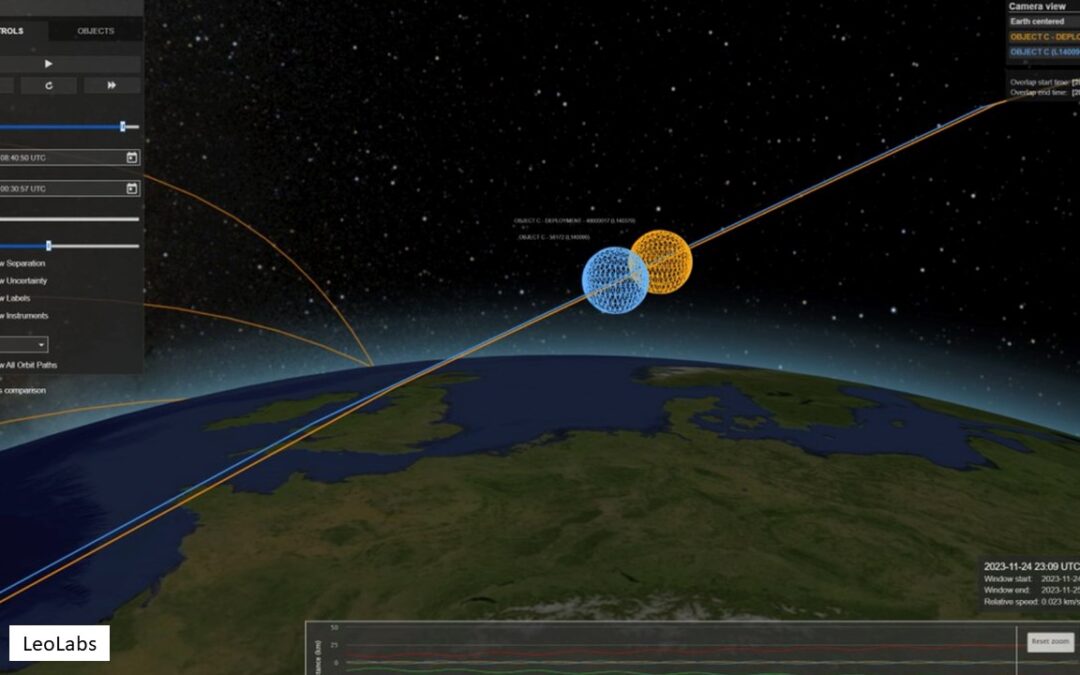Image: LeoLabs
What’s New: A discovery by Australia’s LeoLabs that Chinese and Russian space activities they might want to hide often happen when folks in the U.S. are celebrating a holiday. In other words, less likely to be paying attention.
Why it’s Important:
- The U.S. is far more dependent on space than any other nation. Data from Pixanalytics.com.
- United States 4,511 satellites.
- China 586 satellites.
- United Kingdom 561 satellites.
- Russia 177 satellites.
- India 62 satellites.
- Canada 56 satellites.
- Germany 48 satellites.
- Luxembourg 45 satellites.
- Argentina 38 satellites.
- Israel 27 satellites.
- As readers of our blog know, this dependency is especially acute for PNT from GPS which enables so many other technologies.
- Two types of maneuvers appear to be predominant. “Birthing” additional satellites and practicing proximity operations.
- Birthing puts more smaller satellites in orbit and can help obscure the total number present.
- Proximity operations can be about placing attack satellites near others so as to be able kinetically damage them, to make it easier to eavesdrop on their activity, or even figure out a way to cyber compromise them. BTW – though a kinetic attack could set off a shooting war, having the ability to easily make a kinetic attack or jam signals from one or more satellites could be a very useful bargaining chip in global great power competition.
What Else to Know:
- Space is physically dangerous and our adversaries are adding to that danger
- China seems intent on being able to harm, or threaten to harm, U.S. infrastructure. See: “China’s cyber army is invading critical U.S. services” Washington Post.
- Talking about the need for automated tracking systems, LeoLabs co-founder Ed Lu said in the article:
“There are too many satellites, there are too many places to hide. This year, there were more than 3,000 satellites launched. So, that’s 10 new satellites a day. There aren’t that many analysts, right? And next year is going to be another 40 percent larger than that. OK, so, we’re talking 15 satellites a day on average,”

LeoLabs: Russia, China time suspicious space activity for some US holidays
The company said that on Thanksgiving, for instance, a Russian satellite’s sub-satellite — in a Matryoshka-style — released yet another satellite, in what a LeoLabs analysis said could’ve been timed for fewer American eyes on the sky.
UPDATED 12/13/2023 at 4:41pm ET with comments from Col. Raj Agrawal, commander of the Space Delta 2.
WASHINGTON — Space monitoring startup LeoLabs says it has spotted a trend: Russia in particular, but China too, seem to be timing potentially threatening on-orbit activities to coincide with US holidays — presumably when fewer American skywatchers are actually looking.
“It may be on purpose. It probably is,” Ed Lu, LeoLabs cofounder and chief technology officer, told Breaking Defense.


